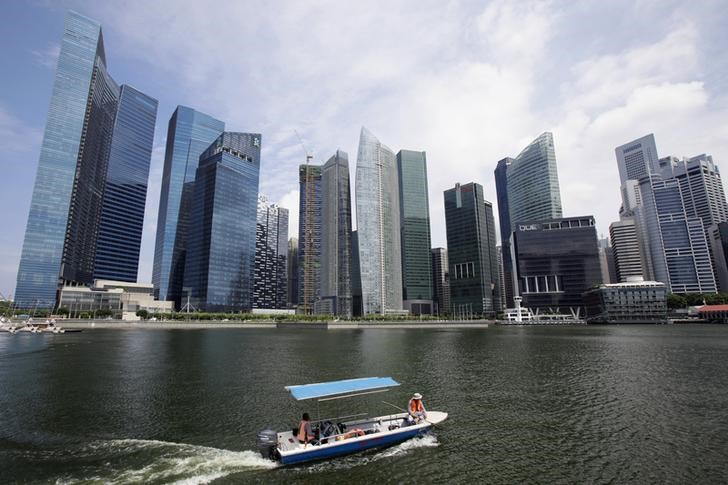Investing.com-- Singapore consumer price index inflation eased slightly in August, data showed on Monday, aided by softer services and food prices, although increased fuel prices still kept inflation underpinned.
Singapore CPI rose 4% in the 12 months to August, as expected, compared to a 4.1% increase in the prior month, data from the Monetary Authority of Singapore (MAS) showed.
Excluding volatile items such as accommodation and private transport expenses, core CPI inflation grew 3.40% in August, slightly missing expectations of 3.5%, and falling from the 3.8% recorded in July.
The softer inflation reading was spurred by easing global supply chain issues, which saw the cost of food and consumer good imports decrease through the month.
But oil imports grew more expensive, tracking a spike in global crude prices through August. The underlying drivers of Singaporean inflation also still remained in play, amid higher labor costs and rising rents.
Still, the MAS said it expects core inflation to moderate further in the coming months, amid continued easing in import prices and as the island state’s labor market grows less tight.
The MAS forecast overall CPI inflation for 2023 to average between 4.5% and 5.5%, while core inflation is expected between 3.5% and 4.5%. The financial authority still warned of potential upside risks to inflation, particularly from higher energy prices and any further increases in import costs.
While the softer inflation reading points to some improving trends for the Singaporean economy, the island state is still reeling from a sharp slowdown in growth, especially as its key non-oil exports shrank substantially this year.
While the economy avoided a recession in the second quarter, the MAS downgraded its outlook for overall economic growth in 2023.
A slowdown in China, which is struggling with a post-COVID economic recovery, has been among the biggest headwinds to Singapore over the past year, given that the mainland is Singapore’s biggest export market.
This in turn saw manufacturing activity slow substantially, although resilience in consumer spending and the financial sector still kept growth in positive territory.
